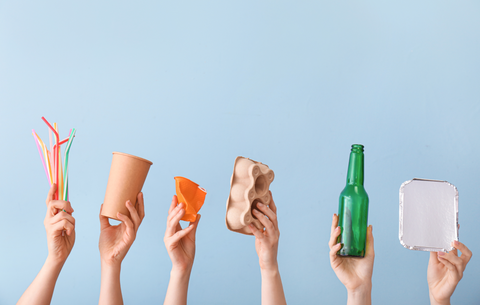Only around 10 percent of all plastic thrown away in Sweden is recycled into new plastic, the rest is burned up in district and cogeneration plants and becomes energy. So, recycling should hardly be our first thought on helping the environment.
In this article, we can read about the common phrase “reduce, reuse, and recycle”, an expression that some time ago was considered the right way towards a greener future. Now recycling bins are part of daily life around the world and a shining example of our ability to cooperate for the good of the Earth.

Nevertheless, we are now at a point where it is not enough to sort cans, bottles and newspapers into the appropriate bins to prevent our waste from destroying the planet. Too many of our products are left to decompose in landfills and waterways.
Without action, our oceans will be filled with more pieces of plastic than fish by 2050 – threatening marine life, industries, people and the environment.
To prevent a worst-case scenario for our planet, we need a new collective mindset in line with the one that gave birth to recycling decades ago. It's time we embrace the idea of a circular economy – one that does everything to stop waste at the production level, where it begins. But the circular economy encourages a different mindset: "repair, redesign, reuse".

How do we get there?
Building awareness is key. We also need regulatory changes – including well-crafted laws, policies and standards – that encourage and protect circular economy projects. There is so much we can do to foster the circular economy and help it grow. If we work together and stay committed, our efforts will not go to waste.
So, let's save our planet, one product at a time!
Are you interested in reading up on more about the environment and what we do? Click here to browse our journal posts.

